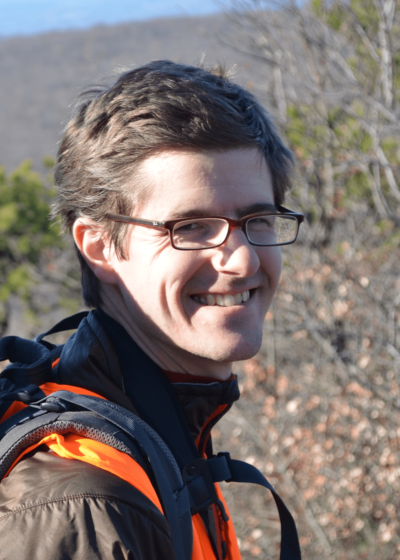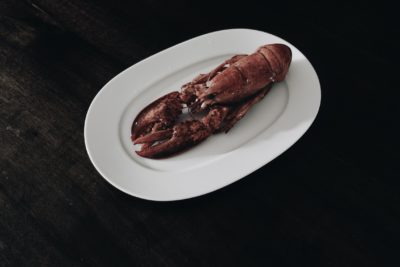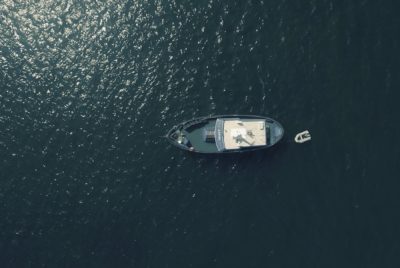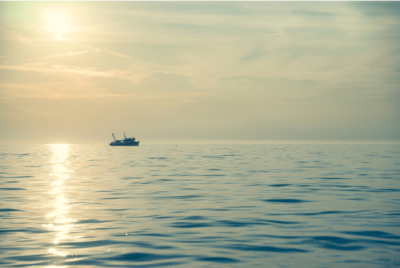People

Malin Pinsky
Ph.D., Biology
Associate Professor, Rutgers University
Malin Pinsky is an ecologist with a strong interest in marine communities and molecular tools. A key goal of his research is to aid in the conservation of marine ecosystems, both by pushing the boundaries of research and through training highly skilled scientists and communicators. His projects have included studies examining adaptation to climate change in temperate marine fish and fisheries, larval dispersal in coral reef fish to inform marine reserve design, and seal population dynamics in response to climate change and hunting.
Publications
Cheung W., Frölicher T., Asch R., Jones M., Pinsky M., Reygondeau G., Rodgers K., Rykaczewski R., Sarmiento J., Stock C., Watson J., 2015, Building confidence in projections of the responses of living marine resources to climate change, Climate Change, Marine Management, ICES Journal of Marine Science, link
Selden, R. L., Batt, R. D., Saba, V. S., Pinsky, M. L., 2017, Diversity in thermal affinity among key piscivores buffers impacts of ocean warming on predator–prey interactions, Global Change Biology, 10.1111/gcb.13838, link
Tommasi, D., Stock, C. A., Hobday, A. J., Methot, R., Kaplan, I. C., Eveson, J. P., Holsman, K., Miller, T. J., Gaichas, S., Gehlen, M., Pershing, A., Vecchi, G. A., Msadek, R., Delworth, T., Eakin, C. M., Haltuch, M. A., Séférian, R., Spillman, C. M., Hartog, J. R., Siedlecki, S., Samhouri, J. F., Muhling, B., Asch, R. G., Pinsky, M. L., Saba, V. S., Kapnick, S. B., Gaitan, C. B., Rykaczewski, R. R., Alexander, M. A., Xue, Y., Pegion, K. V., Lynch, P., Payne, M. R., Kristiansen, T., Lehodey, P., Werner, F. E., 2017, Managing living marine resources in a dynamic environment: The role of seasonal to decadal climate forecasts, Fisheries Management, Climate Change, Progress in Oceanography, 52, 15-49, link
Morley, J.W., Selden, R.L., Latour, R.J., Frolicker, T.L., Seagraves, R.J., Pinsky, M.L. 2018. Projecting shifts in thermal habitat for 686 species on the North American continental shelf. PLoS ONE 13(5): e0196127, link
Selden, R. L., Thorson, J. T., Samhouri, J. F., Bograd, S. J., Brodie, S., Carroll, G., Haltuch, M. A., Hazen, E. L., Holsman, K. K., Pinsky, M. L.,Tolimieri, N., and Willis-Norton, E. Coupled changes in biomass and distribution drive trends in availability of fish stocks to US WestCoast ports. – ICES Journal of Marine Science, doi:10.1093/icesjms/fsz2
Fredston-Hermann, A., Selden, B., Pinsky, M., Gaines, S.D., & Halpern, B.S. (2020). Cold range edges of marine fishes track climate change better than warm edges. Global Change Biology. doi:10.1111/gcb.15035 link
Hoey, J. A., Fodrie, F. J., Walker, Q. A., Hilton, E. J., Kellison, G. T., Targett, T. E., Taylor, J.C., Able, K.W. & Pinsky, M. L. (2020). Using multiple natural tags provides evidence for extensive larval dispersal across space and through time in summer flounder. Molecular Ecology. doi: 10.1111/MEC.15414
Nereus colleague Jack Kittinger (Arizona State University), with Transform Aqorau and Johann Bell, respond in Science’s Policy Forum to a recent article co-authored by Nereus PI Malin Pinsky (Rutgers University). Pinksy et al. discuss how geographic shifts of migratory species due to climate change may potentially lead to conflicts over resources, while Aqorau et al. discuss examples of how good governance is working for migratory species.
Meet Nereus’s new research fellow Zoë Kitchel, who is working towards her Ph.D. in the Ecology and Evolution Department at Rutgers University under Principal Investigator Dr. Malin Pinsky. You can learn about her background, and what inspired her to pursue research exploring the dynamics at species range boundaries.
Nereus Program Principal Investigator Malin Pinsky (Rutgers University) has published a commentary in PNAS on research regarding climate vulnerability and resilience in the American lobster fishery.
3 March 2017 - 3 March 2017
Nereus Research Associate Colette Wabnitz (University of British Columbia) writes about attending the OceanVisions2019– Climate Summit, ‘Successes in resilience, adaptation, mitigation, and sustainability’ in Atlanta, Georgia on April 1-4th, 2019. She was co-chair of session VI – Integrated Modelling of Human and Climate Impacts on Ocean Systems. Fellow Becca Selden (Wellesley College) and Principal Investigator Malin Pinsky (Rutgers University) also attended.
Nereus alumnus Rebecca Asch (East Carolina University) writes a blog about her upcoming publication in the journal Global Change Biology, which focuses on how climate change is influencing seasonality, thereby creating critical mismatches in the timing between fish spawning and phytoplankton blooms in marine food webs.
Becca Selden (Wellesley College) and Malin Pinsky (Rutgers University) are co-authors on a new study in ICES Journal of Marine Science – “Coupled changes in biomass and distribution drive trends in availability of fish stocks to US West Coast ports.”
Nereus Program principal investigator Malin Pinsky was the focus of a recent article that appeared in ScienceNews and in ScienceNews for Students – “Malin Pinsky seeks to explain how climate change alters ocean life”.
Principal investigator Malin Pinsky and research fellows Becca Selden and Zoë Kitchel are co-authors on a new publication in Annual Reviews, entitled “Climate-Driven Shifts in Marine Species Ranges: Scaling from Organisms to Communities”.
Becca Selden and Malin Pinsky are co-authors on a new study published in Global Change Biology, “Cold range edges of marine fishes track climate change better than warm edges.”
Principal Investigator Malin Pinsky is a co-author on a new study published in Molecular Ecology, “Using multiple natural tags provides evidence for extensive larval dispersal across space and through time in summer flounder.”













